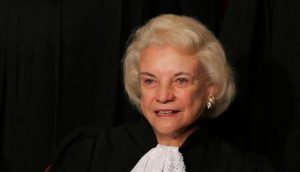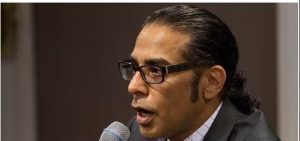Twenty-fifth
of June is one of the most significant dates in the Indian political calendar.
For it was on this day in 1975, the world’s largest democracy declared an
emergency that would raise questions on the feasibility of electoral democracy
in South Asia. Indira Gandhi, the then Prime Minister of India, the first woman
leader of India, deployed what was the biggest constitutional weapon in her
hands to stifle dissent against her government.
June 25, 2022
marks the 47th anniversary of the Emergency. This year’s observance
comes on the heels of the presidential elections due next month. In the second
decade of the 21st Century, India’s presidential nominees are an
Adivasi woman and ex-governor – Droupadi Murmu – and a former civil servant and
Union minister – Yashwant Sinha.
Emergency
raised several critical questions on the form and structure of Indian
democracy. One of the most significant ones was with regard to the role of the
President of India in the decision-making process.
In 1975,
India’s president was Fakhruddin Ali Ahmed, a politician from Assam who had
participated in India’s freedom struggle. He was chosen to be president by
Indira Gandhi in 1974. His role in accepting Prime Minister Indira Gandhi’s recommendation
to declare Emergency has been one of the most contested questions in modern
Indian history.
Leading up to
the Emergency
On June 12,
1975, the Allahabad High Court convicted Indira Gandhi of electoral malpractice
in the 1971 general elections. Gandhi, who contested the polls from Uttar
Pradesh’ Rae Bareli defeated socialist leader Raj Narain with a big margin. She
was convicted of using government officials to perform electoral duties on her
behalf. The court order disqualified Gandhi from Parliament for six years and
put a ban on her holding elected office.
India’s
current Supreme Court Chief Justice NV Ramana, speaking at an event last year,
recalled the significant contribution of the Allahabad High Court. It was there
that he said, “In 1975, it was Justice Jaganmohanlal Sinha from the Allahabad
High Court who passed the judgement that shook the nation, when he disqualified
Smt. Indira Gandhi. It was a judgment of great courage.”
The Emergency
On the early
hours of June 26, 1975, Indians heard their prime minister speaking on the All-India
Radio. She said, “The President has proclaimed Emergency. There is nothing to
panic about.” Twenty-eight year’s earlier, Pandit Jawaharlal Nehru, had in the
dead of the night, proclaimed Indian democracy’s ‘tryst with destiny’ and
announced India’s awakening to life and freedom. Just around three decades
later, Nehru’s daughter Indira Gandhi had suspended all fundamental rights of
citizens in the world’s largest democracy.
The document
proclaiming Emergency had been signed by President Fakhruddin Ali Ahmed the
previous night. As the day began, a power cut ensured no newspaper could be
published for the next two days. Hundreds of political leaders, trade unionists
and activists were arrested.
Rationale for
the Emergency
The Congress,
Indira Gandhi’s party, claimed that the Emergency was proclaimed to control “internal
disturbance”. Indira Gandhi said there were three reasons for the Emergency: first,
the movement launched by Jayprakash Narayan threatened India’s national
security, second, there was need for rapid economic development to help the
underserved, third, she felt there were international powers looking to
destabilise India.
While the
Allahabad High Court’s verdict surely had to play a role in the proclamation of
the Emergency, the months preceding the proclamation had seen a massive rise in
prices, tremendous food shortages and rising unemployment.
The
Navanirman Andolan had broken out in Gujarat, first led by students, and then
supported by workers. At the same time, Jayprakash Narayan, the Gandhian socialist
freedom fighter gave the call for “total revolution”. Amidst this, the Indian
railways, was going through a difficult time. A railway strike called by
socialist leader George Fernandes paralysed the railway network for weeks.
End of the
Emergency
The Emergency
began as a surprise and end as one as well. It was 21 months later and the
Indian citizenry had gone through an unprecedented time. Indira Gandhi, one of
the most popular leaders India had ever seen, was to see a humongous defeat in
the 1977 elections. The Janata Party, a coalition of interests bent on
defeating Indira Gandhi, came to power with 295 seats.
President’s
role
Fakhruddin
Ali Ahmed’s role in the proclamation of Emergency has often been criticised.
While there are arguments that defend him owing to the limited powers an Indian
president in the country’s parliamentary system, there are those who say Ahmed,
India’s second Muslim president, could have taken a principled stand.
On June 25,
2022, India stands at the brink of another presidential election, which the
prime minister’s nominee is expected to win. While the new millennium has been
a very different experience of India, the country of a billion people is once
again steeped in unemployment and troubled by rising inflation. When India
elects its next president, the world’s biggest democracy will hope that the
leader of the Indian Union will stand true to constitutional values.






